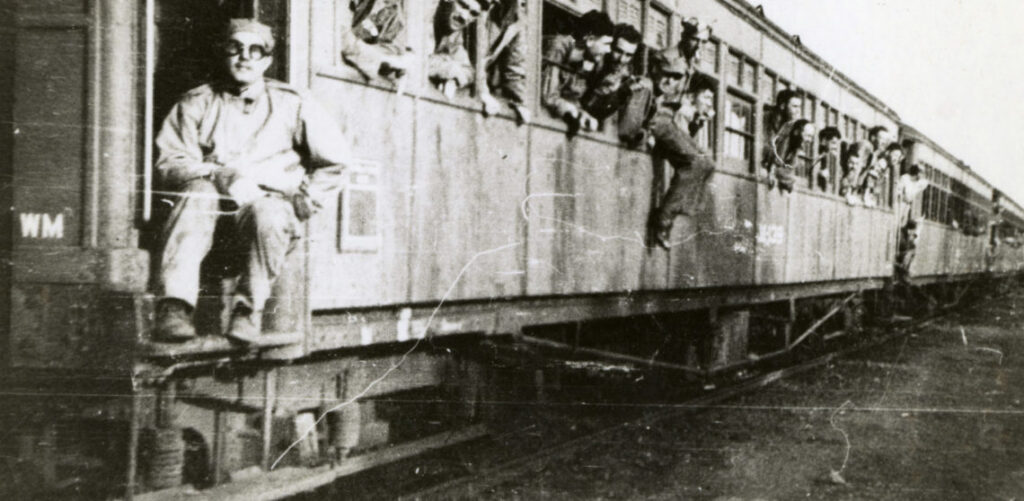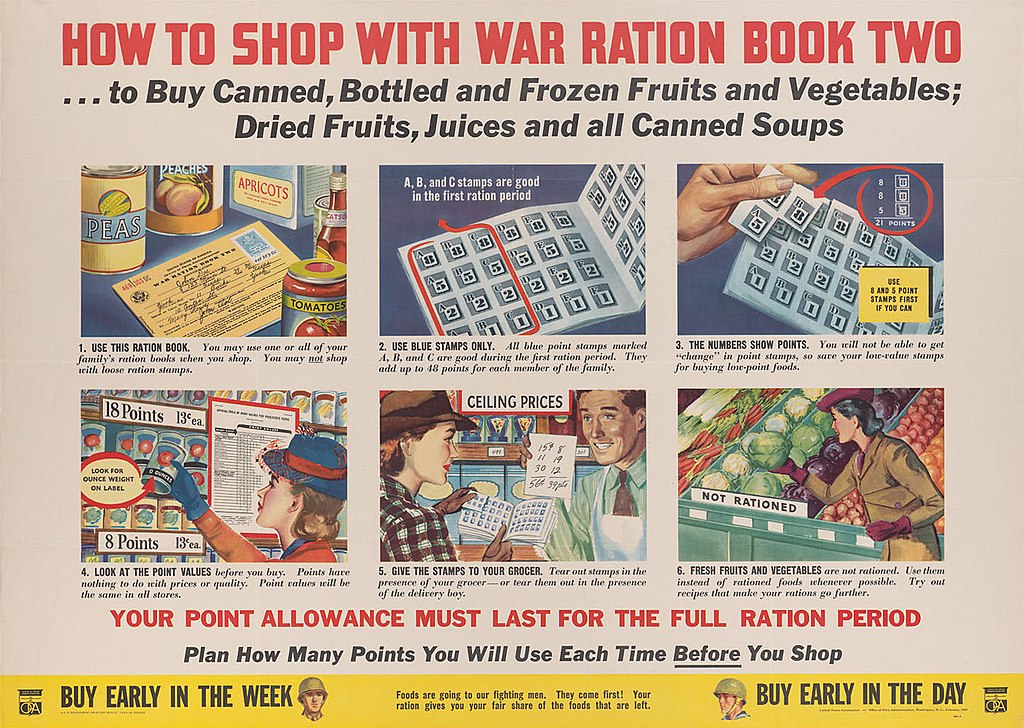Letters to Loretta: Sleepless on a WWII Army train
- By Kaitlin Oster
Share This Article

Editor’s Note: Sandboxx News presents a World War II series by Kaitlin Oster on the power of hope, letters, and love in seeing us through the terrors and agony of war. You can read the other installments here and listen to Kaitlin’s radio interview about the series here or visit her website here.
April 24, 1942
Dear Doll,
Excuse my writing because I’m riding on a train. My destination is [Keesler] Field, Missouri, where Gerry used to be. I think I’ll be in the ground crew of the Air Force. I’ll like that. I left Camp Upton at 11:00 AM Friday. We don’t expect to leave the train till Sunday 1 PM. I’m playing cards and having fun with the fellows; no girls and no beer since Sunday. I miss you very much and wish you could be here with me.
I was really homesick. The Army keeps me pretty busy and I don’t have much time to think about things. Of course I don’t forget you, I never will. You occupy my mind every night, and my heart all the time. It must be that I love you. How could anyone help it, you’re so swell and nice and even beautiful. I love you doll.
I would like you to thank the family for me for the presents I received. They’re swell. Give them my regards and wish them health. I’m sorry I couldn’t call you last night, but I only received your message at 8:30. I called up home and told them I was leaving; I had hopes that Herb would look up the train and tell you when I would arrive at Jamaica. Got to Jamaica about noon and I was looking for someone to be at the station. I wasn’t disappointed altogether, though, because I saw my home and the vicinity I used to reside in. That was the only time.
The Pullman will be around soon to make my bed so I’ll see, kiss, and hold you in my dreams. Good night Doll and dream of me.
I’ll remain your Honey Sweets.
Love,
Ha
P.S. I love you with all my life.
All my life

Harold was called to train for the Second World War on April 20. His twin brother, Arthur, was called to the Pacific on March 16. Both brothers were caught with feelings of excitement and fear. It was the longest they would ever be apart in their 22 years. They each had their girls at home, they had jobs; they were now going to go defend those jobs, defend their loved ones back in Queens.
Loretta waited until her love was beyond her sight before she turned away back into the doorway of the now-empty home and wept. Her tears were mostly those of pride, but also of uncertainty. She never wanted to think the worst – but it was war. She hoped and prayed with all she had that Harold would return home safe from wherever he was called to. But a small flame – a small pinprick in the back of her mind kept asking, what if he doesn’t?
Newly engaged and with dreams of a cottage on the water, Loretta’s mind swirled at the idea of Harold risking his life – of her not having him to share the rest of her life with. She couldn’t imagine it. Even in a place like New York, with all the people and new faces to be seen each day, she couldn’t envision anyone else by her side other than Harold. She knew she wouldn’t go on without him, so she decided that he would have no other choice but to return home to her. Eventually, she rose from her chair, wiped her tears, and smoothed out the front of her dress. This was no way to think, she thought. Besides, she took comfort in knowing that Harold was in the company of familiar faces, like Jack and Ned.
There were Harold and Arthur, the Schwerdt boys – and then there were Jack and Ned. They had all grown up around each other, through the Depression, school, and holidays. The boys were simply one large extended family.
The brothers were many, even with their different last names. Harold, Arthur, Jack, and Ned were determined from their boyhood to be men in uniform – not just for the discipline and the looks, but because throughout their lives the military was something that seemed to always be constant regardless of the economics.
Born in the 1920s, one of the most prosperous times for the United States, these young men experienced an absolutely tragic economic downfall before any of them became 10 years old. Harold and Arthur had to watch their family of 11 struggle and work to keep a roof over their heads; their father going from milkman to brewer, musical performer to handyman – anything to put food on the table. They helped, sure, but as children, they were wary of what their lives would entail when they were their father’s age. So – at least for the twins – a life in the military would guarantee steady pay; they could honor their country, and also take care of their loved ones.
Related: Letters to Loretta: A series into the power of humanity to persevere during war
Leaving for the unknown

Harold sat in his train car as it pulled away from Jamaica Station. He was leaving the haze of New York for the unknown. As men hung out the traincar windows and kissed their girls goodbye, he sat quietly, staring out into the crowd. Deep down, Harold wished his gal would be on the platform, waiting anxiously to see him off one last time, but he knew there was a good chance that his brother wouldn’t have received his message in time.
The train jerked forward and as it did he rubbed his hands along the tops of his thighs. This is really it, he thought. Soon, Harold would be somewhere in the south, then, the midwest. Then Maine. Then – the far reaches of the world, fighting the Axis Powers, killing the enemy, ending the war (he hoped). What a strange time, he thought, to go from the little block in Jamaica to being away from his family, Loretta, and Artie, with no real end in sight. The only certainty Harold had was of his train’s destination.
He realized he’d been gripping his knees for quite some time. Calmly, he picked up a hand and smoothed back his hair. Harold watched as the buildings became smaller and took out a pencil and paper to write Loretta. Sending her parcels always brought him comfort because he knew the enthusiasm she had when reading his notes. She really was swell, he thought, and he knew he’d have to make it home to her once all this was over.
That evening Harold found himself unable to sleep. The train rocked in a way that was similar to his summers on the boat, but it was more jarring than anything. He tried to persuade himself to sleep on the memories of water lapping against the hull of the old boat, and would soon drift off into a light slumber until the train rocked too much in one direction and he was again jolted awake by the sound of metal on metal.
Related: Letters to Loretta: From Wendover Air Force Base with love

“Damn it all,” he said to himself as he rolled over, trying to sleep and failing again. Only a couple of days left of this, he thought. Harold knew eventually he’d have to adjust to the methodical cranking and panging of machinery now that he was officially off to the call of duty. As a boy, he had to sleep with the busy sounds of Jamaica outside his bedroom window night after night, but this was different. Too loud a bang, too bright a flash, and it could mean death. He thought fondly of the summer before at the rental home. Loretta and Jeanne had visited him, Arthur, and the rest of the boys for some fishing and barbeque. He loved watching Loretta work on a tan that was fruitless, for she was entirely Irish and could manage no more than a pink hue. Pink, like her favorite strawberry ice cream. He smiled. He missed her and their ice cream dates. It made his stomach queasy, thinking about how much uncertainty surrounded the war; the train jerking around didn’t help, either.
Harold got up from the bed and opened his car door. A Pullman was walking down the hallway towards him.
“Can’t sleep, sir?” He flashed a smile and tipped his porter’s cap. Harold returned the smile.
“Can’t seem to, no. I have my sea legs but I am yet to find my train legs.” The porter laughed and patted Harold on the shoulder.
“Well, sir, I sometimes find myself working near-on 400 hours a month on these trains and I have to tell you, there are times when I don’t think I have my train legs!” They shared a laugh and Harold felt at ease to be in decent company.
“The name’s Harold. What do they call you?” He extended a hand and shook the porter’s. The porter returned with a firm grip.
“My name is Charles. Pleasure to meet you, Harold. Now if you’ll excuse me, I have to make rounds up and down this train. Better keep the momentum up before I lose my train legs.” Charles flashed another smile to Harold. “You get some sleep now, sir. Try counting sheep.”
Harold took the advice and excused himself back into his car. His bunkmate lay silent and peacefully asleep – how Harold wished he could do the same. He lay on his back and pulled the blankets up to his chin; scratchy but warm. Then he began to count sheep in his head as Charles suggested – one, two, three.
Read more from Sandboxx News
- Garrett STAMP – The Marines nearly got a weird flying jeep during the Cold War
- Appearance is everything in the age of digital warfare
- F-35 versus A-10 showdown revived as new documents come to light
- SR-72? Hints of a new Skunk Works spy plane reignite rumors of a Blackbird successor
- Accounts of daily life with the Delta Force through 18 months of global training
Related Posts
Sandboxx News Merch
-

‘AirPower’ Classic Hoodie
$46.00 – $48.00 Select options This product has multiple variants. The options may be chosen on the product page -

‘Sandboxx News’ Trucker Cap
$27.00 Select options This product has multiple variants. The options may be chosen on the product page -

‘Kinetic Diplomacy’ Bumper Sticker (White)
$8.00 Add to cart
Kaitlin Oster
Related to: Military History

How a Delta Force operator celebrated New Year’s in Bosnia

How have American military rations evolved in the last century

New Navy video imagines high-tech warfare in 2043

Russia’s Su-57 Felon will never be the F-35 fighter
Sandboxx News
-

‘Sandboxx News’ Trucker Cap
$27.00 Select options This product has multiple variants. The options may be chosen on the product page -

‘AirPower’ Classic Hoodie
$46.00 – $48.00 Select options This product has multiple variants. The options may be chosen on the product page -

‘AirPower’ Golf Rope Hat
$31.00 Select options This product has multiple variants. The options may be chosen on the product page -

‘Sandboxx News’ Dad Hat
$27.00 Select options This product has multiple variants. The options may be chosen on the product page
